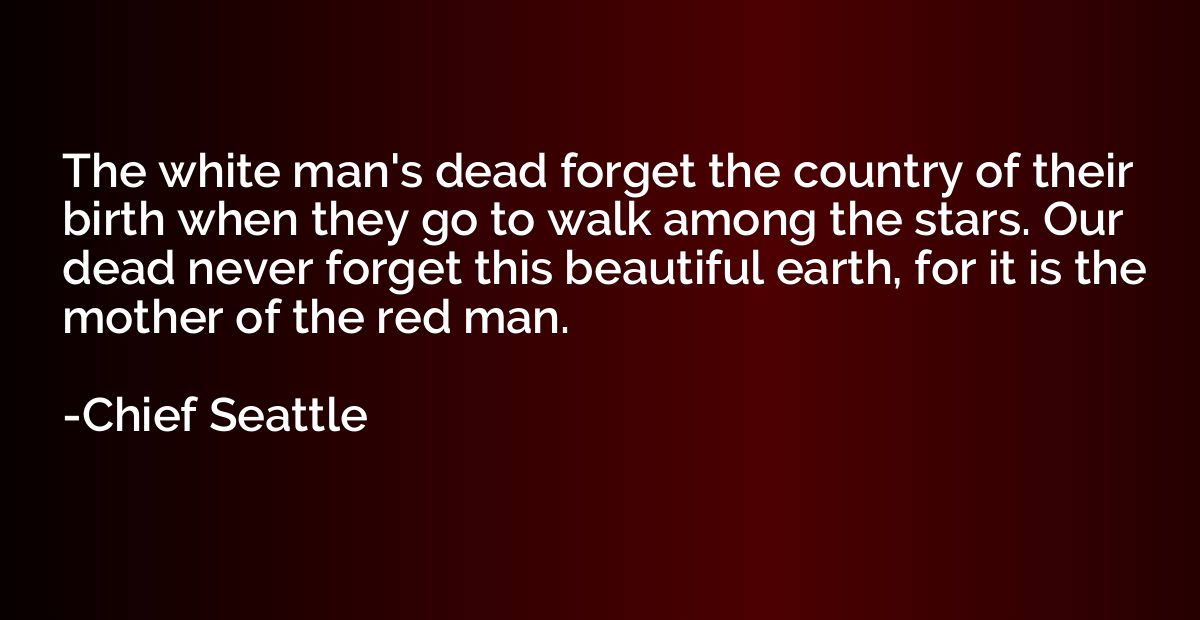Quote by Chief Seattle
The white man's dead forget the country of their birth when they go to walk among the stars. Our dead never forget this beautiful earth, for it is the mother of the red man.

Summary
This quote illustrates the contrasting perspectives between white and red men when it comes to their connection with the earth. It suggests that when white men die, they leave behind their attachment to their country of birth and attain a sense of detachment as they transcend to the celestial realm. In contrast, the quote conveys that red men (i.e., Native Americans) view the earth as their mother and maintain a deep reverence and attachment to it even after death. It highlights the spiritual bond that red men have with the natural world and emphasizes their rootedness in their ancestral land.














